Posts Tagged ‘Natural Gas’
In Defense of Mary Suhm. No. Really.
Jim Schutze at the Dallas Observer came across an interesting piece of video the other day. It was the deposition of former Dallas City Manager Mary Suhm in the on-going lawsuit between jilted gas driller Trinity East and the City.
In their cross-examination, lawyers for Trinity East are asking Suhm about a secret (at least to the Council and the public) 2008 Memorandum of Understanding between the two parties trading Special Use Permits for gas drilling and production sites the company wanted to access on City-owned flood plain and park land – despite prohibitions on drilling in those places at the time of the agreement – in return for $19 million in upfront leasing payments.
Trinity East's lawyers want Suhm to say the agreement "guaranteed" the permits, and when the Plan Commission subsequently voted to deny them, and the City Council lacked the super-majority to override that denial, the City, by way of its agent in this matter Mary Suhm, defaulted on the agreement.
City of Dallas lawyers want Suhm to say Trinity East executives knew the drilling sites were off-limits at the time they signed the memo and, despite paying the City of Dallas $19 million before they got their permits, the company knew it was not a sure thing. According to the City's lawyers, what Trinity got was precisely what Suhm promised in the agreement: her best efforts to maneuver the company's permits through City Hall bureaucracy.
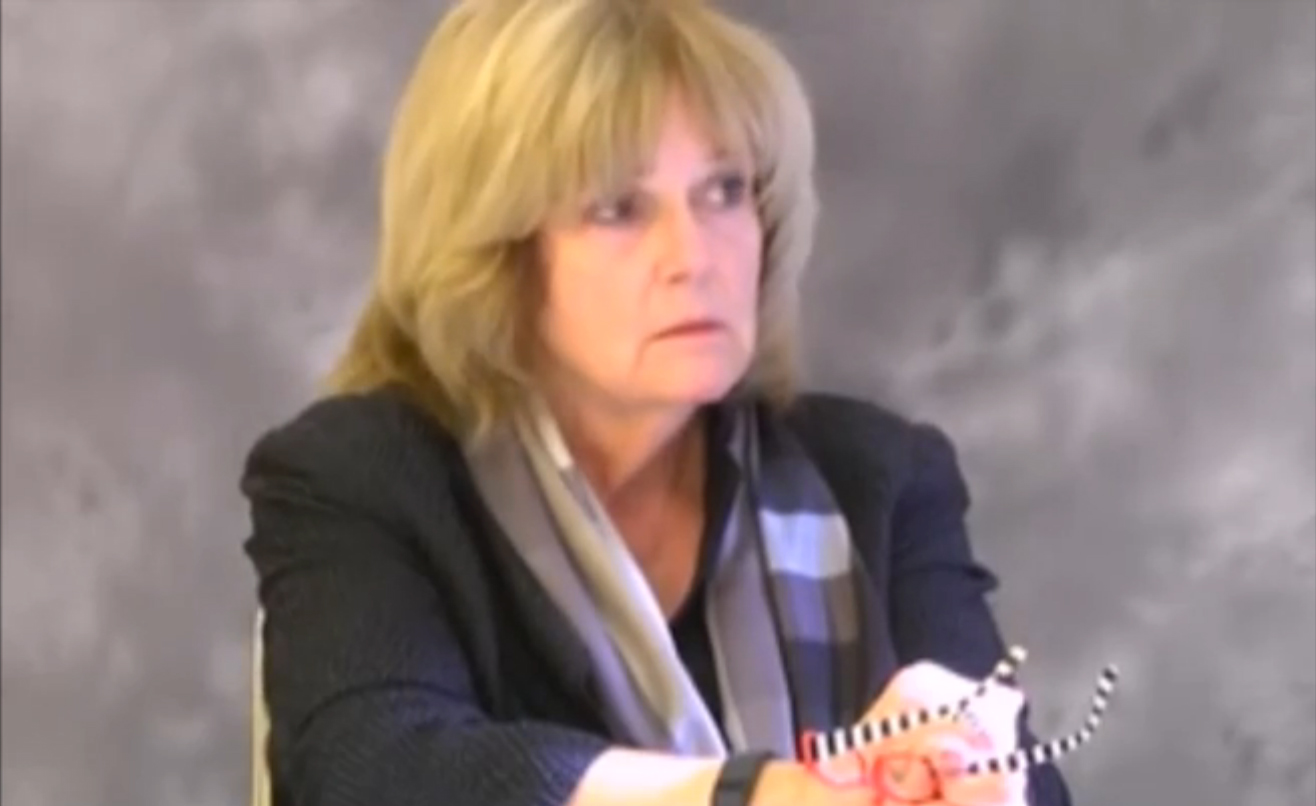 The crux of this back and forth comes at about the 4:30 point of the five minute video when Trinity East's lawyer, on behalf of his client, asks, "What is it they get for their $19 million dollars?"
The crux of this back and forth comes at about the 4:30 point of the five minute video when Trinity East's lawyer, on behalf of his client, asks, "What is it they get for their $19 million dollars?"
Suhm says Trinity East "got the right to apply" for SUP permits.
But those permits cost considerably less than $19 million. What was Trinity East really paying for with those leasing checks, and did they get their money's worth?
Allow us to defend Mary Suhm.
When Trinity East wrote those checks, Suhm was riding high as City Manager and her command over Council affairs was already legend, especially as she negotiated the city budget through very tight times. Trinity knew the signature of a mere elected official was not sufficient. Those come and go at City Hall with hardly anyone noticing. It wanted the boss's John Hancock on the document and the boss was Mary Suhm.
Besides a perfectly legal and hefty bribe when the City needed it during the Great Recession, Trinity was investing in the power of Mary Suhm and her relationships with the Powers-That-Be. The company had every confidence as the ring master of the downtown circus, Suhm could make things happen that otherwise wouldn't happen. She was in control.
Trinity East wasn't wrong – in 2008. Had they pursued their permit requests in the next one to three years, there's every likelihood Trinity East would have received them.
But the company waited until 2011.
What had happened in those intervening three years?
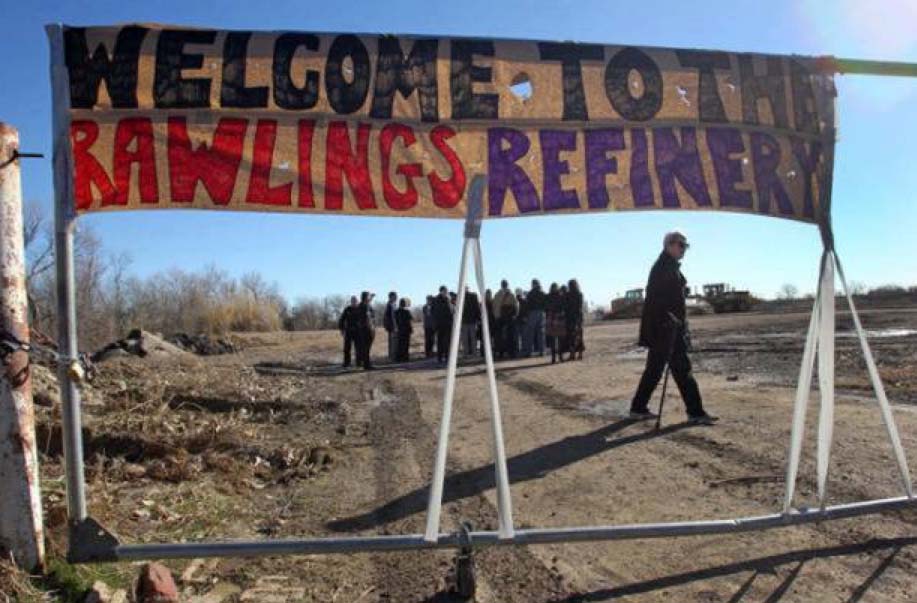
There was a drilling backlash beginning to reach full volume in the Barnett Shale, aided by a new national awareness of fracking as it spread to other parts of the country. Josh Fox's "Gasland" came out in 2010 and was nominated for an Academy Award in 2011. Burning tap water replaced a folksy Tommy Lee Jones as the face of gas drilling in North Texas. Citizen groups were sprouting in every city with drilling fighting for larger buffer zones and more pollution controls. There were stories in the media all the time. Because no health or environmental studies had been done on urban fracking, all kinds of new ones were launched or just being reported on for the first time.
In light of the new controversy, Councilwoman Angela Hunt helped drive the City to convene a gas drilling task force, giving residents a chance to organize around the issue before Trinity East even applied for their permits. Every concern – air, water, even earthquakes – that would later become ammunition for opponents showed up in this task force process first.
Scott Griggs ran for Dallas City Council from one of the districts targeted by new gas drilling permits and won on an anti-drilling platform against an incumbent. He joined Hunt as a fierce critic of Dallas urban drilling. Neighborhoods were showing new muscle.
And so the stage was set for more of an uphill fight than what Trinity probably would have confronted in 2010.
Mary Suhm must have taken note of some of this and sighed when Trinity finally put in for its permits. Now they show-up?
Still, let the record show she put on a stiff upper lip and gave 110% to the cause of getting Dallas City Hall to approve Trinity East's permits. She contorted bureaucracies. She muscled appointees and council members alike. She and her staff worked overtime to try to subvert every move of the growing opposition to Trinity East's permits. When the company lost, it wasn't because Mary Suhm didn't pull out all the stops, but despite the fact she did.
Now, we're pretty sure this is a defense the City of Dallas lawyers don't want to use, but we offer it up here in case they need to break the glass and begin building firebreaks in court to keep from paying back the $19 million.
These are only the most egregious examples residents know about.
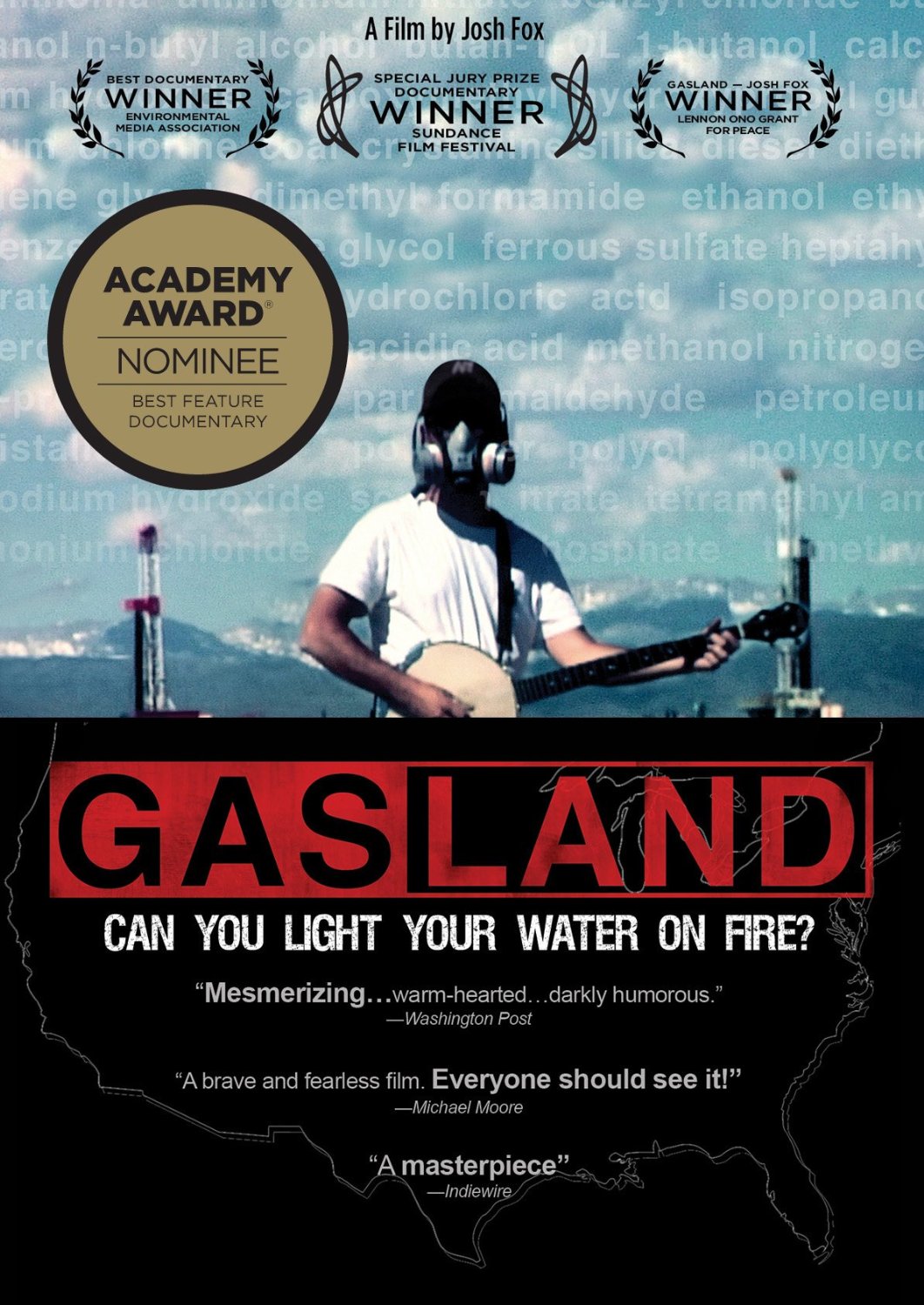
2011 Gas Drilling Task Force
In retrospect, it's easy to see Suhm's manipulation behind the last-minute Task Force endorsements of park and flood plain drilling. And when we say last-minute, we mean it.
Task Force members had already voted to keep the prohibition against drilling in these areas at a previous business meeting. The last meeting of the Task Force was supposed to be a pro forma affair that would ratify all previous recommendations and send them along to Council. Task Force member attendance was therefore down. This is when Task Force Chairwoman and former city council member Lois Finkelman chose to spring new votes on these two issues – and these two issues only – and won a reversal on each. Not only of the Task Force positions – but of current city policy, which of course didn't allow drilling in either area then.
Many excuses were used to justify this re-examination and re-vote that day, but none of them were the truth. Finkelman and staff were doing Suhm's bidding, and she was looking out for Trinity East. While it's not clear if Finkelman knew about Suhm's secret agreement, you can be sure Suhm, or someone on her behalf, made it clear to Finkelman it was VERY important to get these exemptions. Finkelman had been a friend to the clean air movement and other environmental causes during her tenure on the Council in the 1990's, but caved because of her relationship with Suhm, a belief she was helping the City out of a jam, or some other reason. At the end of the day, she weakened proposed city policy in accordance with what Trinity East wanted.
This is certainly something Trinity East got for its $19 million.
2012 Xmas Plan Commission Hearing on Trinity East Permits
Scheduled on December 20th, 2012, this was the first time gas drilling permits had been voted on for Dallas in three years, or pre-national outrage. It occurred before the Task Force recommendations had been considered and adopted into policy. In other words, after a call to reform its outdated drilling ordinance, and after a special Task Force had already been convened and issued its recommendations, Dallas was now about to grant three new permits, including one for a compressor station and refinery, under the old ordinance it was trying to replace. What was the rush? Why not wait and approve new permits until after the Task Force recommendations are written into a new ordinance? Because that would cause further public debate. More debate would highlight the problems of drilling in sensitive areas like park land and flood plains – still off limits in Dallas at the time.
In a transparent attempt to limit public awareness and participation even more, the City decided to hold this important hearing only five days before Christmas. Again, in retrospect, this has Mary Suhm's fingerprints all over it. And it almost worked. But just enough citizens showed up, representing enough well known groups and neighborhood organizations, and citing just enough new facts that had changed the situation since 2008 to win the climatic vote, 7 to 5 at 7:30 pm that evening. It was uncertain which way the decision would go right up until the very end.
Showing-up expecting to lose, instead citizens were elated. Overturning the denial would take a super majority of 12 votes on the Council – something that even then seemed unlikely. Citizens thought they had won. Mary Suhm had tried her best to rig the system, but the rigging failed. She tried again.
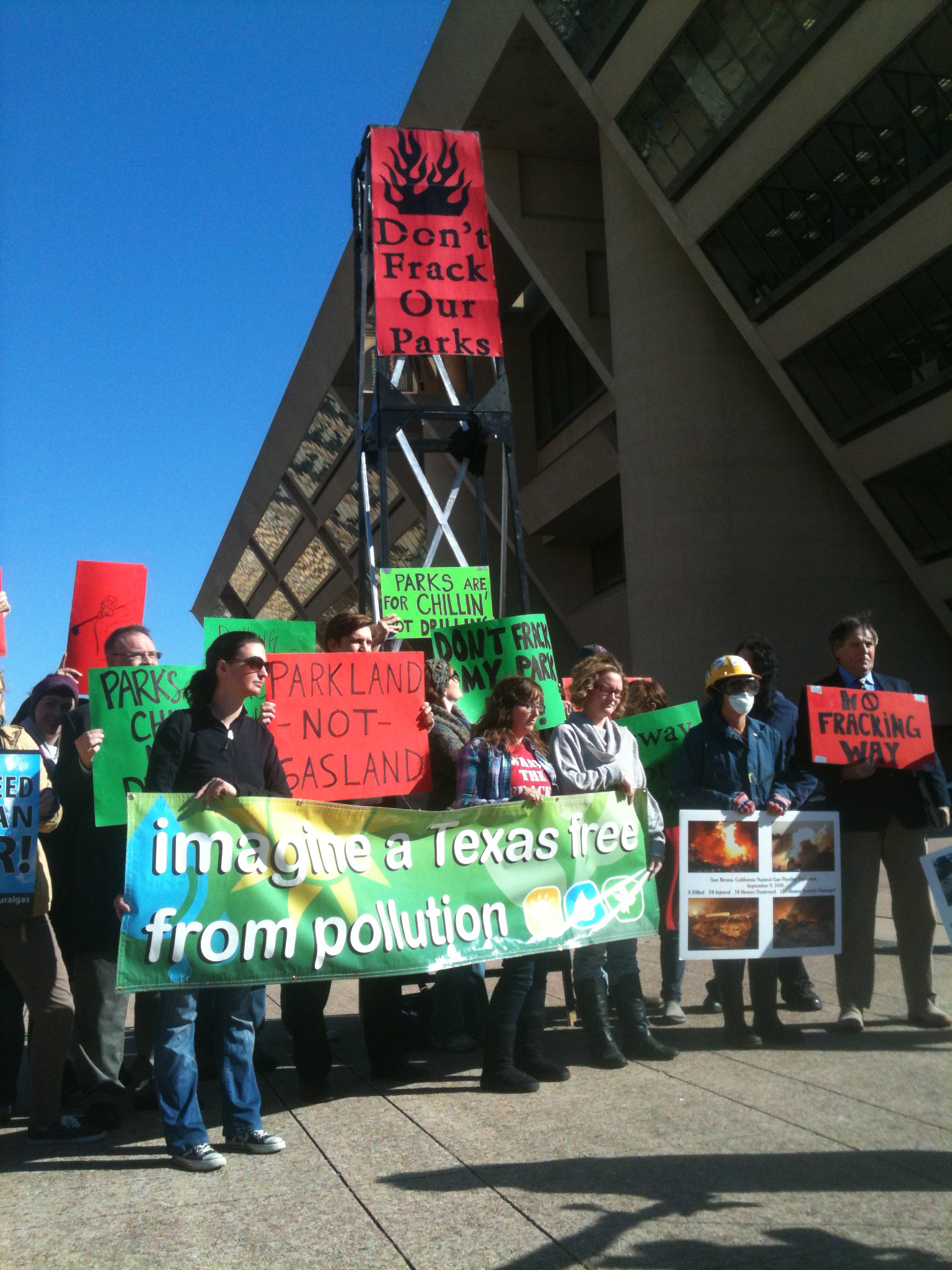
January- February 2013 Plan Commission "Reconsideration Vote" on Previous Permit Denial
Because she'd lost the December Plan Commission vote and knew she might not be able to get the 12 votes on the Council to overturn, Suhm had to do something creative. Viola! The Plan Commission would have a vote to "reconsider" their denial of Trinity East's permits only 21 days earlier. Nobody could remember the last time the Plan Commission even took such a vote. It was unprecedented. It was also Mary Suhm's handiwork.
That do-over decision came at a "special meeting" of the Plan Commission on January 10th, with a 6 to 5 vote to indeed take another vote on Trinity East's permits. This outcome, done under heavy police presence and with no public participation allowed, spurred one of the most iconic moments at Dallas City Hall in recent years – a 3 to five minute spontaneous standing crowd chant of "Shame."
You can see the speed at which Suhm is moving behind the scenes to engineer a better outcome after her unexpected defeat before Christmas. She's doing exactly what she promised Trinity East she would do. She's working the levers. Making things happen that would never otherwise happen. But now, it's costing her more to do so. The contortions of the system necessary to get the permits through are getting more twisted and harder to pull off gracefully. She's gone from talks with friends behind closed doors to forcing awkward "do-over" votes. It was obvious to the public there was something special about these Trinity East permits. Company officials had been dropping hints about some sort of an agreement with the City. Mayor Rawlings said permitting these sites "were a done deal" – although he didn't say why. It was getting messy.
Finally, on February 7th, the day the Plan Commission had scheduled the "do-over" vote, the Dallas Observer broke the story on the Suhm-Trinity East agreement. It was now clear what was driving the favoritism behind the treatment of the Trinity East permits by City Hall – going all the way back to the last-minute reversal of the Task Force, to the Christmas time hearing, to the pending "reconsider vote."
The timing could not have been worse for Suhm. We'll never know what the vote to reconsider might have been were there no headlines pointing to a City Hall cover-up. She may have thought she had the votes to keep the Trinity East permits alive. But with the story breaking that very day, the spotlight was too bright on the Plan Commission to take a new vote. Citizens won a reprieve and eventually a victory as the Commission requested the City Council deal with changing the current prohibitions against parkland and floodplain drilling before asking them to violate current ordinances again. That never happened. Instead, the three Trinity East permits were again denied by the Plan Commission in March 2013, albeit by razor-thin 8 to 7 and 9 to 6 margins.
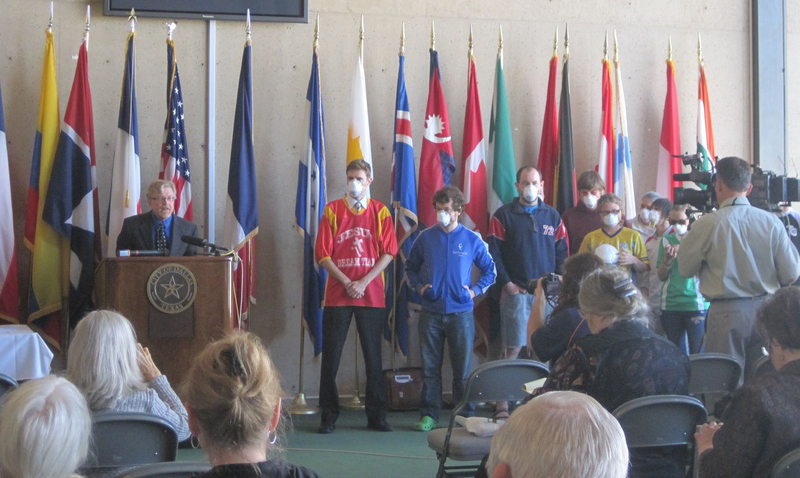 And that was that. Suhm was gone in four months. Officially it wasn't because of the cover-up of the Trinity East agreement, but of course everyone knew it was because the whole thing was headed to court one way or the other.
And that was that. Suhm was gone in four months. Officially it wasn't because of the cover-up of the Trinity East agreement, but of course everyone knew it was because the whole thing was headed to court one way or the other.
Although the Mayor tried to rally 12 votes on the Council to overturn, he couldn't do it. The prospect of the kind of rolicking citizen protests keeping the Plan Commission on the 6 o'clock news showing up at a Council Meetings could not have helped his cause at this point.
Urban fracking opponent Philip Kingston had replaced Hunt on the Council, Griggs was still there, and they were joined by enough other council members (Sandy Greyson, Monica Alonzo, Carolyn Davis, and Adam Medrano) to insure the Plan Commission vote would prevail.
At the end of the day, Trinity East walked away empty-handed. but make no mistake about it. Mary Suhm did all she could to subvert the system for Trinity East.
Had the Dallas Observer not revealed the secret agreement, she might have even won the day for the company and still be City Manager. Was it $19 million worth of subversion? At today's inflated rates, who knows? But other than funding a small army and declaring herself dictator of the Drilling Republic of Dallas, she did all she could.
If you're Trinity East you can complain about the outcome, but you can't complain about her effort. There were too many variables out of her control for once. Not the least of which was a vigorous, rowdy, neighborhood-based movement against urban fracking in Dallas that was taking the fight to the public square…and winning. Sometimes, even the most powerful City Manager is on the wrong side of history.
The Mansfield Fight Goes National And Industry Gets Worried
 We must be doing something right.
We must be doing something right.
Last Thursday, Energy in Depth, the national PR arm of the oil and gas industry, singled out Downwinders at Risk for our support of longer setbacks between people and gas industry facilities in Mansfield and other North Texas cities.
EID calls these setbacks, now passed in DISH, Denton, Southlake and Dallas, "defacto bans" because they require wells and compressors to be anywhere from 1000 to 1500 feet from homes, schools, park and other "protected uses" – to use city zoning lingo.
But of course these setbacks are defacto bans only because industry wants them to be – not because there are any technical obstacles to them reaching the gas underneath these cities due to distance. Gas operators can now punch a hole and reach deposits up to at least a mile or two away from where they place their rig on the surface. That's more than three 1500-foot setbacks end-to end. Operators have to spend more to drill to get that gas, but that's the price they pay for trying to place heavy industry in the middle of residential areas, parks, or near schools – something most cities don't allow when it comes to hazardous waste incinerators, chemical plants or landfills. Part of the problem is the inherent arrogance of the gas industry's position – it wants to pollute like a heavy industry, but it doesn't want to be regulated like one.
You know the folks in Corporate are getting worried when these things pop up on the Energy in Depth agenda. They understand their much-beloved "Fort Worth model" of less protective 600-foot setbacks and looser regulations in now under organized assault. While the rest of us see a constant barrage of new studies coming out every month emphasizing the dangers to human health of proximity to gas facilities, the industry wants time to stop in 2010, before we knew so much. But time marches on. And so does knowledge, and then public opinion.
Mansfield is deep into the Shale. It shares a border with Ft. Worth, unofficial headquarters for the Barnett Shale Energy in Depth crowd. A rejection of Cowtown's approach to regulating the gas industry here would be a major setback to the industry. The stakes are high. Just in the last week, two national publications, a subscription-only national newsletter called Environment and Energy Daily, and the Center for Public Integrity, have posted stories on the Mansfield fight. They've hit a nerve. That's why Energy in Depth is writing about it.
Getting criticized by EID is recognition that the partnership between Mansfield Gas Well Awareness and Downwinders at Risk is having an impact. We consider is a badge of honor. Our only regret is that it came too late to be used in our traditional end-of-year fundraising letter. Because after months of frustration, Mansfield residents are finally getting the attention they and their complaints deserve from their city council and the media. It's a national fracking fight hotspot. That's not an accident. That's good organizing.
North Texas Fracktivists Unite! You Have Nothing to Lose But Another Bad Drilling Ordinance

Mansfield City Council Work Session on a New Gas Drilling Ordinance
6 pm, Wednesday, December 3rd
Mansfield Performing Arts Center workroom
1110 W Debbie Ln, Mansfield, TX 76063 (map)
Denton's successful citizens revolt is off the streets for now and in the courts. The next organized front in the battle over urban gas drilling in DFW is the Fort Worth suburb of Mansfield. And this next Wednesday, December 3rd, beginning at 6 pm, hard-pressed residents there need your help in turning the tide.
In response to months of grassroots effort on the ground, and only after the very first presentation by a physician on the medical consequences of fracking, Mansfield's city council has called for a "work session" to "discuss" changing its circa-2009 drilling ordinance for next week.
Only this work session is designed to shut down the residents call for reform. The city is inviting
– The Railroad Commission
– The Texas Commission on Environmental Quality
-All local elected officials ( Joe Barton, Bill Zedler, Rob Orr, Jim Pitts, etc)
– All 12 gas operators with wells and/or compressors in town, including Eagleridge, Exxon-owned XTO, Chesapeake, Atlas, Devon and Enervest.
These "stakeholders," along with city staff and city council will be given 15 minutes to make the case that the status quo is just fine. And oh yeah, then the residents group – Mansfield Gas Well Awareness – will get their 15 minutes to rebut the previous 90 minutes. No "outside groups" like ShaleTest or Downwinders – are allowed to participate or aid them.
What began as a simple request by the residents to meet one-on-one with the mayor has now blossomed into this huge conflagration where the city hopes to overwhelm the local group. It's in the self interest of everyone concerned about clean air and citizens rights and good government and fracking to prevent that by showing up in support of change on Wednesday night.
Even if you don't live in Mansfield, you have a dog in this fight. The air pollution from those Mansfield wells and compressors ads to downwind smog and toxic air pollution that residents in Arlington and Fort Worth and places further away breathe.
Progress in Mansfield means progress is more likely in other places in the Shale. A victory there means we advance a new, better model for regulation further west. Mansfield has more wells per capita than almost anyplace else in North Texas, over 200 now in a city of just 60,000 with the potential for another 300. Like other Tarrant County cities, it got hit early and hard by the Boom. Its drilling ordinance was written in 2008-2009, and based on – what else? – Fort Worth's model of 600 foot setbacks. This is a chance to bring the newer, more protective Dallas-Southlake-Denton model deep into industry-friendly territory.
Showing up next Wednesday means you're saying no to the bullying tactics the Mansfield city government are using to silence local residents. Just like corruption and gas drilling went hand in hand in Dallas, so it is in Mansfield, with no apologies for using a gas industry spokesperson as the city's main negotiator for gas drilling issues.
Two of its seven city council members have direct ties to the gas industry and obvious conflicts of interest over gas drilling decisions for the city. But one of them, Stephen Lindsey, is the Mansfield city council's point person for all things gas related despite, or because, of his job as "Government Affairs and Community Relations Director" for Quicksilver Resources, the sixth largest operator in the Barnett Shale. We've written extensively in this blog post about Lindsey's national role as an industry expert in "managing" local opposition to drilling. The guy is an industry PR troubleshooter and he's now personally directing Mansfield's response to the resident's request that the city update its ordinance.
Mansfield residents are besieged. They need your help. They need your butt in a seat on Wednesday night at the "work session." It's no coincidence this session is happening now, as the holiday season begins. The Powers That Be are hoping it wil get lost in the shuffle. Don't let that happen. If you want to see the legacy of the Dallas victory extended, if you want to see Denton's hard-fought victory pay-off elsewhere, please be at this Wednesday night showdown in Mansfield. It's the next hotspot for change, and we can't get it done without your active support.
Mansfield City Council Work Session on a New Gas Drilling Ordinance
6 pm, Wednesday, December 3rd
Mansfield Performing Arts Center workroom
1110 W Debbie Ln, Mansfield, TX 76063 (map)
“I’m on Both Sides of It.” Mansfield City Councilman Stephen Lindsey Has the Worst Conflict of Interest in the Barnett Shale
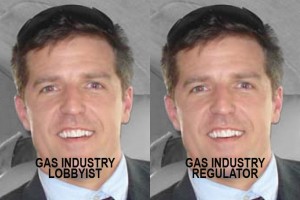 Stephen Linsdey is an entrenched member of the oil and gas industry. In the mid-Oughts he worked for Flowserv, the multinational manufacturer of valves and pumps used at thousands of oil and gas facilities worldwide. From 2007 to 2008 he was put in charge of protecting and developing Iraqi oil fields during the Iraq War. Beginning in 2008, just as the local Shale boom was taking off, he went to work for Quicksilver Resources inc, the sixth largest producer in the Fort Worth Basin, where he's been ever since, serving as Senior Director Of Government Relations and Community Affairs.
Stephen Linsdey is an entrenched member of the oil and gas industry. In the mid-Oughts he worked for Flowserv, the multinational manufacturer of valves and pumps used at thousands of oil and gas facilities worldwide. From 2007 to 2008 he was put in charge of protecting and developing Iraqi oil fields during the Iraq War. Beginning in 2008, just as the local Shale boom was taking off, he went to work for Quicksilver Resources inc, the sixth largest producer in the Fort Worth Basin, where he's been ever since, serving as Senior Director Of Government Relations and Community Affairs.
According to the company's job description, Lindsey's responsibilities "include community relations, municipal/city engagement, governmental/legislative affairs, regulatory/permitting, external affairs and corporate/public relations." He's also Treasurer of Quicksilver's Political Action Committee, overseeing the distribution of thousands of campaign contributions to officials such as Arlington Mayor Robert Cluck, Fort Worth Mayor Betsy Price, Railroad Commissioner Barry Smitherman, and Texas House Representative Jim Keffer, Chair of the House Energy Committee.
Lindsey's job is to smooth over any regulatory obstacles in the way of Quicksilver's production goals. He's the company's lead negotiator with local and state governments. He also is in great demand on the oil and gas industry speaker circuit as an expert on how to deal with what he says are those "working against industry's interest."
In his own words, "My role in my organization is to make insure the guys that want to drill wells and complete wells, and run pipelines, and put in surface equipment, and move trucks can do it uninhibited. Can do it without fear their permits are gonna get denied, or the regulatory structure is going to come down on them."
That's his day job. But Stephen Lindsey is also a Mansfield City Council member. In fact, as coincidence would have it, he's the city council member the Mayor has put in charge of overseeing the city's gas drilling policies.
And now, he's the city's go-to guy for the re-examination of Mansfield's obsolete 2008 gas drilling ordinance that's been the subject of a steady grassroots campaign of determined residents. You got a problem with that?
As it turns out, Lindsey isn't even the only member of the Mansfield city council who's intimately connected to the oil and gas industry. Larry Broseh is president of a drilling parts manufacturer whose clients include gas patch operators all over the state, including the Barnett Shale. That's two out of the seven city council members who have a pretty big conflict of interest.
But it's not just who Lindsey works for that makes for the outrageous double duty. It's what he does for Quicksilver. He's the slick PR guy that interfaces with local city councils to downplay the hazards of fracking in order to win permits. He's the spokesperson in the media. If Quicksilver had wells in Mansfield (the closest ones are in Arlington), the council would be sitting across the table from Stephan Lindsey. And as a national poster boy for fracking's public relations strategies, he's often the friendly face of the industry across the country. He's certainly fracking's most high profile elected official in the Barnett. And he wants you to know he's sincere about trying to get "the best product" i.e the best conciliatory agreements between industry and government.
With only 60,000 residents, but over 200 wells and another 300 potential ones to come, Mansfield has twice as many wells per capita than Denton and almost a third more per capita than even Fort Worth. Residents there are pressing to replace an industry-blessed "Fort Worth model" 600-foot setback (that's really a 300 setback with variances) with a "Southlake/Dallas model" 1500-foot setback minus any variances. Outside of Denton, now in court over an outright ban on fracking, Mansfield is the next battleground in the Barnett Shale for the clash between these two competing regulatory templates.
Lindsey is well aware of this clash. Part of his job is going around the country warning industry about the growing power of local governments in regulating drilling. He cites Flower Mound and Denton as bad examples. As one industry conference panel moderator posed it to Lindsey, "What's your advice on how to prevent a Denton?"
According to Lindsey, "local governments are increasingly at odds with state government." Cities don't feel as if they're protected by state entities like the Railroad Commission or TCEQ anymore. "Detrimental regulations" by municipal governments are on the rise. When older white Republicans are opposed to you, "that's a sea change."
Much to Lindsey's chagrin, unlike Colorado, where the Attorney General has taken local county governments to court because of this overreach, Texas home rule cities "can do whatever they want." If the cities think it's in their best interests, those regs "are going to stand" unless they're challenged. You can almost taste the anticipation he has over the lawsuits the Denton fracking vote has generated as a chance to settle the score and cut the cities down to size.
In his presentations to industry peers, Lindsey boosts about his role as a Mansfield city council member. "I'm on both sides of it. I'm out lobbying, er, presenting at City of Fort Worth, City of Arlington, City of Haslet, City of Southlake, City of Northlake – all of our operational areas, trying to get our permits approved and on the other hand, I'm sitting on our own city council listening as XTO, and Chesapeake, and other operators come in and present there."
Traditionally, the strictest interpretations of conflict of interest have meant that the elected official or a close relative had to have worked for or owned stock or or percentage in the specific company being discussed. Since Quicksilver doesn't have any wells in Mansfield, Lindsey passes that test. But in terms of a more general conflict over the escalation of local regulation of the gas industry, his positon in Quicksilver and as an industry spokesperson certainly does pose a conflict.
He doesn't hesitate to describe threats to the industry as a whole, or to advise other companies on how to "manage them." No matter how much more protective to public health it might be, wouldn't the spread of a Dallas-like model of "detrimental" regulation of drilling to a place like Mansfield be a bad precedent for the industry as a whole? Wouldn't it constitute a threat to other operators like Quicksilver, whose own future wells might be targeted next in Arlington, or Haslet, or God forbid, even Fort Worth?
If he was being honest, Stephen Lindsey the industry lobbyist would have to say yes. After all, as he noted to a Colorado reporter in an article over a local County's demand for a monitoring water well Quicksilver didn't want to install, "We’ve got to make prudent decisions about what option is best for the company."
In 2010, the City of Fort Worth Ethics Committee ruled that three gas company employees had a conflict of interest in serving on its air quality study committee by concluding, "The level of their loyalty to their employers has put them in a position of wearing two hats."
The same is true of Stephen Lindsey. Mansfield residents shouldn't have to guess which hat Lindsey is wearing when he's working as a city council member, or whether he's putting their well-being or the industry's bottom line first.
(Most of the quotes used in this post come from a presentation for the American Business Confernce in October, avaialble for viewing online: http://vimeopro.com/lbcg/fe14/video/108496562)
Mansfield Gas Well Awareness Group Opens Up New Front in DFW Urban Drilling Fight
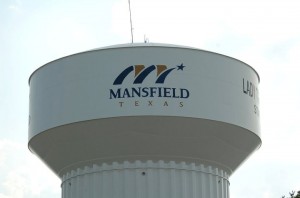 Ever since winning the Dallas Gas Wars in December of last year, Downwinders at Risk and our partners at the Texas Campaign for the Environment have been looking for a place and time to take the responsible drilling fight deeper into the Barnett Shale. We're glad to announce that we're teaming up with the newly formed Mansfield Gas Well Awareness group to do just that.
Ever since winning the Dallas Gas Wars in December of last year, Downwinders at Risk and our partners at the Texas Campaign for the Environment have been looking for a place and time to take the responsible drilling fight deeper into the Barnett Shale. We're glad to announce that we're teaming up with the newly formed Mansfield Gas Well Awareness group to do just that.
Mansfield is a relatively small Tarrant County town with a big gas industry presence. Sandwiched between Arlington and Fort Worth, it has a population of 59,000 spread over 36 square miles. it already has 200 wells on 51 gas pads with a total of 512 planned – or an average of 14 per square mile. Many of the most problematic wells are operated by Eagle Ridge – the same company whose antics single-handedly began the current "ban fracking" campaign in Denton. Like Denton, Eagle Ridge's Mansfield wells are close to homes, and have been known to spew surrounding neighborhoods with their own scrubbing bubbles concoction from flowback operations and incurred a rare violation notice from the state in February. The city also hosts a notorious Teas Energy Midstream compressor station that's a suspect in showering homes with an oily film from what was most likely from a messy blown down accident in May.
Those incidents got people's attention. Seeing themselves as the victims of a permissive "Fort Worth Model" of gas regulation, local residents are now moving to organize around a citizen-friendly "Dallas Model" with more protective setbacks, restrictions, and monitoring. As their new website and Facebook page notes, "Mansfield Gas Well Awareness is not a movement against natural gas or exploration of natural resources. Rather, we are against the permitting of toxic gas well activities near homes, schools, day cares, and parks. We are a movement of concerned residents that live in Mansfield who are for clean air, safe and healthy communities, and protecting peoples' rights to peacefully enjoy their property."
As is so often the case, pollution problems on the ground are connected to ethical problems at City Hall. Mansfield councilman Stephan Lindsey, who until recently was Mayor Pro-Tem is Senior Director of Government and Community Affairs for Quicksilver Resources, "a Fort Worth natural gas and oil exploration company" who never feels compelled to recuse himself from any votes concerning the municipality's regulation of the gas industry. Councilman and New Mayor Pro-Tem Larry Broseh is owner and President of Cam Tech, a company "dedicated to providing the drilling industry qulity pipe handling equipment," and also doesn't mind using his public office to vote on behalf of his industry interests. That means almost a third of the seven member Mansfield city council has professional gas industry ties.
As it happens, Mr. Lindsey is up for re-election next May. Old timers might recall that the Dallas drilling fight got real traction when gas friendly incumbent city council member Dave Neumann was upset by newcomer Scott Griggs way back in 2011. Although the new group hasn't officially targeted Lindsey, defeating him with a candidate more skeptical of industry claims would certainly send a strong message that Mansfield residents don't want the fox guarding their chicken coops.
The good news is that Mansfield Mayor David Cook took MGA members up on their invitation to see the Downwinders' presentation to the regional air quality meeting in Arlington on June 16th, where Director Jim Schermbeck devoted half of his time to explaining why gas compressors should be electrified. As far as we know, Cook was the only DFW are Mayor in attendance and it was a real coup for the young group to get him there.
MGWA's website already has some amazing pics and videos, as well as depressing factoids to share. If you know someone living in Mansfield, please let them know a new voice for citizens concern in on the scene and organizing to clean up the current messes as well as prevent new ones. Now that Downwinders has joined the fight, we'll certainly keep you posted on developments as well. Westward ho!
We Won a Small Victory – Now Come Take Advantage of It
 This is why citizen participation matters.
This is why citizen participation matters.
Last week, local officials were balking at reserving a slot at next Thursday's regional air planning meeting for a presentation by UNT researchers on how gas industry emissions from the Barnett Shale could be adding to DFW's chronic smog.
After reading about the UNT research in the Denton Record Chronicle, Downwinders at Risk and State Representative Lon Burnam specifically asked the local Council of Governments to include the UNT work on the agenda.
At first, we were told that there was already one technical presentation scheduled for the meeting and there wouldn't be any time for a second.
That struck us as strange, since in the past, every such meeting has always had more than one technical presentation.
When we pointed this out in an e-mail with links to past meeting agendas to prove the point, we quickly got a different response. Suddenly, there would be time for the UNT presentation.
That wasn't so hard was it? All it took was a little logical push back. But if we hadn't supplied it, Thursday would be looking a lot different.
Now, we're asking you to please come and help us push back a little more.
State environmental officials are on record as saying the air pollution from gas mining and production in the Barnett Shale is not adding to DFW's smog.
A lot of us think otherwise.
Come next Thursday, on the 17th, you can listen to the new UNT research on fracking air pollution and ask Texas Commission on Environmental Quality officials directly what makes them so sure that gas pollution isn't hurting local air quality.
Because the format of these regional clean air meetings are now so informal, anyone in the audience can ask questions of a presenter. That means you – if you show up.
It doesn't matter if you don't know the technical lingo. This is all about wind direction, weather, and things that pollute. There are no stupid questions.
The new anti-smog plan that the state is building needs all the public scrutiny it can get. It needs tough examination by people who care about clean air and the truth.
Next Thursday, you can help us put the state on the spot.
This is the first opportunity in 2014 to speak up and sound off about our decades-long smog problem. Don't let the TCEQ leave town without hearing from you.
We fought and won the right for you to listen to this research because we thought it was important. Won't you please come and take advantage of this victory?
We need a good showing to prove DFW residents are still mad about breathing dirty air.
NEXT THURSDAY, APRIL 17th
10 am to 12pm
North Central Texas Council of Government headquarters
616 Six Flags Drive
(After the meeting, State Representative Lon Burnam and Downwinders will be hosting a lunch time de-briefing, location to be decided, so stay tuned.)
Look, we know this is a small victory. But state officials don't want to talk about how gas industry pollution may be making our local smog worse, even though there's evidence that it is.
That's exactly why we think we need to keep bringing it up.
Winning the right to hear a new scientific presentation on the connection between gas pollution and smog may not seem like much of a win, but it is when the Powers-That-Be don't want you to hear it.
We know that small victories like this can lead to larger successes.
In the 1990's the same state agency that's now denying gas pollution has any impact on DFW smog was saying exactly the same thing about the Midlothian cement plants.
It took lots of push back from citizens who knew better before we got the state to admit it was wrong.
Now, Ellis County is in the DFW non-attainment area and the cement plants have controls on them they would otherwise never have.
We need the same effort in 2014 to show the state is as wrong about gas industry pollution as it was about the cement plants.
Right now, Downwinders is the only group committed to organizing citizens around clean air issues in DFW.
But we just lost a funding source that was critical to us and we need your help to keep the pressure on. This money paid for staff work in the field.It's very easy to give securely online here, or you can send checks to our P.O. Box at the bottom of the page.
We really need your help. Thank you.
Can You Spot the Mistake in This Map?
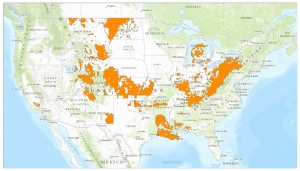 Here's why there's a missing big orange splotch….or two….or three, in Texas in this new national map of oil and gas well concentration.
Here's why there's a missing big orange splotch….or two….or three, in Texas in this new national map of oil and gas well concentration.
New UNT Study-In-Progress Links Gas Pollution to Persistent DFW Smog
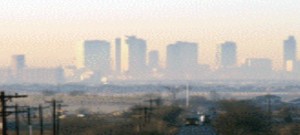 This is why it's important for citizens to have real scientific horsepower.
This is why it's important for citizens to have real scientific horsepower.
DFW has a smog problem. It's not as bad as it used to be, but it's still at unsafe and illegal levels. And for the last four or five years, the air quality progress that should have been made has been stymied. Despite almost all large sources of smog-producing pollution being reduced in volume, our running average for ozone is actually a part per billion higher than it was in 2009.
Many local activists believe this lack of progress is due to the huge volumes of smog-producing air pollution being generated by the thousands of individual natural gas sites throughout the DFW region itself, as well as upwind gas and oil plays. In 2012, a Houston-based think tank released a report showing how a single gas flare or compressor could significantly impact downwind smog levels for up to 5 mile or more. Industry and the Texas Commission on Environmental Quality say no, gas sources are not significant contributors to DFW smog. In fact, during this current round of planning, the state has gone out of its way to downplay the impact of gas pollution, including rolling back previous emission inventories and inventing new ways to estimates emissions from large facilities like compressor stations.
Into this debate steps a UNT graduate student offering a simple and eloquent scientific analysis that uses the state's own data on smog to indict the gas industry for its chronic persistence in DFW – especially in the western part of he Metromess, where Barnett Shale production is concentrated.
On Monday night Denton Record-Chronicle reporter Peggy Heinkel-Wolfe gave a summary of a presentation on local air quality she'd sat through that day at UNT:
"Graduate student Mahdi Ahmadi, working with his advisor, Dr. Kuruvilla John, downloaded the ozone air monitoring data from the Texas Commission on Environmental Quality back to 1997, a total of more than 6.5 million data points, he said, and has been studying it for the past four months.
Ahmadi wanted to explore a basic question underlying a graphic frequently distributed by the TCEQ that shows gas wells going up in DFW as ozone goes down, which suggests in a not-very-scientific-at-all way, that the increasing number of gas wells is having no effect on the ozone.
Ahmadi adjusted for meteorological conditions to determine how much ozone DFW people are making and where. Such adjustments have been explored by others to understand better the parts of ozone-making we can control, because we can’t control the weather. He used an advanced statistical method on the data, called the Kolmogorov-Zurbenko filter, to separate the effects of atmospheric parameters from human activities.
According to the results, the air monitoring sites surrounded by oil and gas production activities, generally on the west side of DFW, show worse long-term trends in ozone reduction than those located farther from wells on the east side of DFW.
His spatial analysis of the data showed that ozone distribution has been disproportionally changed and appears linked to production activities, perhaps an explanation why residents on the western side of DFW are seeing more locally produced ozone, particularly since 2008.
Ahmadi's results are not definitive, and the paper he's writing is still a work-in-progress. But he's asking the right questions, and challenging the right unproven assumptions. He's at least put forth an hypothesis and is trying to prove or disprove it. He's using science. TCEQ's approach is all faith-based.
Anything that takes the focus off vehicle pollution is anathema to Austin and many local officials who want to pretend that industrial sources of air pollution don't impact the DFW region enough to make a difference so they don't have to regulate them. If there's a guiding principle to TCEQ's approach to this new clean air plan, due in July 2015, it's to avoid any excuse for new regulations while Rick Perry is running for President. The agency isn't interested in doing any kind of science that might challenge that perspective – no matter how persuasive. After all, you're talking about a group that doesn't believe smog is bad for you. TCEQ doesn't want to know the truth. It can't handle the truth. It's got an ideology and it's stickin' to it.
So it's up to young lowly graduate students from state universities armed only with a healthy sense of scientific curiosity to step up and start suggesting that the Emperor's computer model has no clothes, and offering up alternative scenarios to explain why DFW air quality is stuck in neutral. It turns out, just doing straight-up classroom science is enough to threaten the fragile House of Computer Cards with which the state's air plan is being built.
Perhaps equally as ominous for the success fo any new clean air plan is Ahmadi's discovery that ozone levels in DFW have been during the winter time, or "off-ozone-season." There could be a new normal, higher background level of smog affecting public health almost year round.
Mahdi Ahmadi's study is just one of the many that need to be done to construct an honest clean air plan for DFW, but it shows you what a curious mind and some computing power can do. Citizens can't trust the state to do the basic science necessary as long as the current cast of characters is running the show in Austin. EPA won't step in and stop the farce as long as TCEQ can make things work out on paper. If the scientific method is going to get used to build a better DFW clean air plan, it's going to have to be citizens who apply it.
A Dallas Drilling Scandal Primer
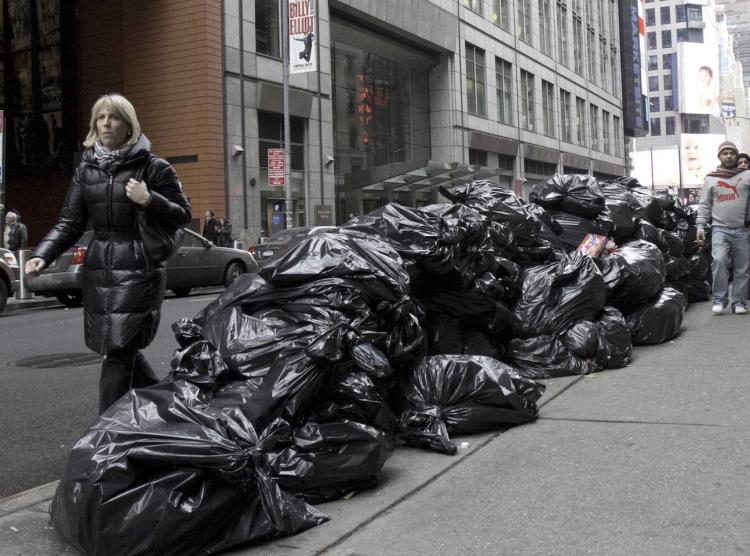 Thanks to everyone who turned out last Thursday for the (abbreviated) public hearing on the Trinity East "zombie" gas permits before the City Plan Commission. Our apologies to those of you who were not allowed to speak by the arbitrary too-soon ending of the hearing. It was one more example of a process gone off the rails when it comes to these permits.
Thanks to everyone who turned out last Thursday for the (abbreviated) public hearing on the Trinity East "zombie" gas permits before the City Plan Commission. Our apologies to those of you who were not allowed to speak by the arbitrary too-soon ending of the hearing. It was one more example of a process gone off the rails when it comes to these permits.
It's now clear that what began as a neighborhood-based effort to fight off irresponsible urban gas drilling three years ago has now grown into not only a turning point for the entire Dallas environmental movement, but as of last week, into the largest Dallas City Hall scandal in years as well. There are suddenly lots of moving parts. Here's a quick summary of what we know as of today.
On Thursday morning, the Dallas Observer broke the story that in 2008 Dallas City Manager Mary Suhm signed a secret side agreement with Trinity East that essentially turned City Hall into a lobbying machine for the company's gas permits. The first impact of that lobbying was a reversal of the no drill policy in Dallas parks. Only six months after city staff had told the Council and Park Board there would be no surface drilling in Dallas parks allowed, the side agreement Suhm negotiated with Trinity East assured the company that she and her staff were "reasonably confident" they could win permission to drill in parks for the company.
Many Dallas activists have speculated about such an agreement as the only way to explain why city staff seemed to be going out of its way to push through the Trinity East permits, including abruptly re-defining the current gas ordinance on the fly, ignoring or flouting precedents, and declining to bring the usual level of official scrutiny to bear. Suhm and city attorneys kept this document from public view even after years of opposition from neighborhood groups to drilling sites, including Trinity East's. At a time when every city staffer had an obligation to wear the Trinity East agreement on their sleeves, City Hall hid the fact they were working for the company to win its permit. Dallas Councilwoman Angela Hunt has prepared a detailed timeline of Suhm's deception.
Suhm declined to talk directly to the Observer, but instead issued a statement to the Morning News that said, in essence, she was shocked, shocked that anyone could think this side agreement with Trinity was a "back room" deal. Mayor Rawlings is standing by Suhm so far, issuing a statement of support late Thursday that emphasized the "non-binding" nature of the side deal that was "cut," as the Mayor so eloquently put it back in November. The Observer's Jim Schutze had a take down of both of their official statements on Friday, saying "some stuff just won't spin."
A growing chorus of groups and individuals are calling for Suhm to resign, as are some Council members like Hunt, and Scott Griggs. Her fate now seems linked to that of the Trinity East permits, since both seem tainted beyond redemption by the disclosure of the side deal. How can any resident or Council member trust what city staff says about the permits? How can any resident or Council member trust that Suhm won't sell them out again?
Meanwhile, the Observer has raised the possibility of Open Records Act violations by the City because it's pretty sure it asked for ALL documents related to the Trinity East permits. Citizens groups and individuals that have been turning in a constant flow of Open Records Act requests for the last three to four years might also have the same gripe.
But they'd have to take a number because four people, including Downwinders Director Jim Schermbeck, Zac Trahan of the Texas Campaign for the Environment, Raymond Crawford of Dallas Residents for Responsible Drilling, and Marc McCord of frackDallas went down to the District Attorney's office and filed a criminal complaint against the City Plan Commission Chair on Wednesday, alleging a violation of the Open Meetings Act prior to the January 10th vote to "reconsider" the Commission's denial of the permits. According to the complaint, Chair Joe Alcantar called members and lobbied them to vote for reconsideration in a practice called "daisy-chaining a quorum" that is explicitly against the law. If the charge is substantiated by an investigation, all subsequent decisions about the permits by the Commission could be invalidated. That would mean reverting back to the original December denial of the permits.
On the political front, John Carona, the Republican State Senator whose district includes the Elm Fork Soccer Complex, sent a letter to Mayor Rawlings, urging him to withdraw his support for the Gas Refinery and Compressor Station proposed for only 600 feet west of the Complex. Democrat State Representative Rep. Lon Burnam of Ft. Worth sent a similar letter, further isolating the Mayor politically.
In all, quite the "goat (act of procreation)", as the Observer's Brantley Hargrove labeled the whole Trinity East controversy last month.
What happens now?
Officially, the City Plan Commission put off any (legitimate or not) vote on the permits until its March 21st meeting. They have now specifically requested the Council deal with changing the current prohibitions against parkland and floodplain drilling before they're asked again to violate the law. So theoretically, the show now moves to the whole City Council, which has scheduled a 1:00 pm Wednesday, February 27th state-mandated public hearing on the city permanently removing park land from the city park system for drilling.
This same hearing has been scheduled twice before however, only to be canceled when the City Plan Commission didn't get around to doing what the Council couldn't bring itself to do first. Up to now the Mayor's strategy was to push the permits through the Plan Commission and Park Board to provide a cover for Council approval of drilling activity in parks and flood plains that's still not allowed. Apparently there's enough resentment about that among Plan Commission members for them to toss the hot potato back to the Mayor and Council. But it does so exactly as the Suhm memo hits and makes political support for the permits more tenuous.
We'll know soon whether the February 27th City Council hearing on turning over park lands to drilling is really on or not. Stay tuned.
“That Deal is Cut”
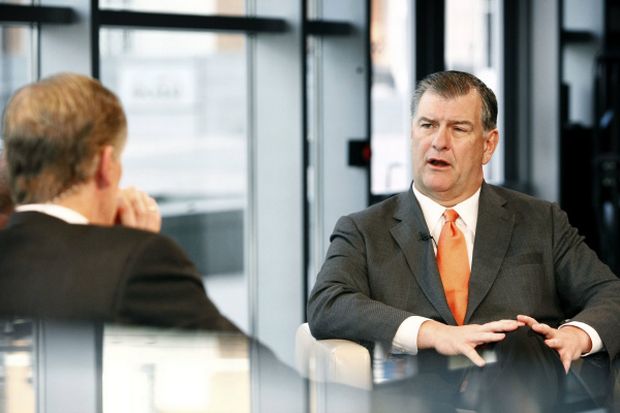 An op-ed from today's Dallas Morning News…..
An op-ed from today's Dallas Morning News…..
There’s a moment in Woody Allen’s Bananas when the newly empowered dictator goes from deliverer to deranged. “All children under 16 years old are now … 16 years old,” he blithely declares. “The official language is now Swedish.” We laugh because the decrees are at such odds with the facts.
Dallas Mayor Mike Rawlings is experiencing his own Bananas moment over old gas drilling leases and having similar luck imposing fantasy on the facts.
But he’s not letting that stop him. The City Plan Commission will hold a do-over vote Feb. 7 on gas permits sought by Trinity East because the first vote, which opposed the permits, wasn’t to the mayor’s liking.
The CPC began hearings on these permits in 2010 but stopped because members were asked to perform tasks — environmental, toxicological and engineering — that were far outside their job description as part-time citizen volunteers.
So City Hall froze all action on the permits, established a task force, let it meet for a year and issue recommendations for a new gas ordinance last spring, and then promptly ignored the results.
In November, the mayor unfroze the process, declaring that the pending gas permits would be decided by the same inadequately equipped CPC, using the same inadequate 2010 rules. After three years, Rawlings has managed to lead us to the same inadequate spot where we started in 2010. Only now, according to him, it’s adequate.
But some things have changed. A Trinity East permit that in 2010 was limited to drilling is now a huge new gas refinery-compressor station that will handle toxic hydrogen sulfide and emit at least 75 tons a year of air pollution — within 600 feet of the city’s largest outdoor recreation center.
How do we know this? Because citizens went to investigate the site plans at City Hall — something no city employee, Plan Commission member or City Council member had done.
That’s a problem because the old, used-to-be-inadequate-but-now-adequate gas ordinance states that such facilities need their own zoning districts. That isn’t part of the current permit request.
It’s also a problem because the chair of the city’s gas task force never wanted compressor stations within the city limits. They emit too much pollution.
Now City Hall is scrambling to solve the problem — linguistically. Staff says that what they defined as processing plants and compressor stations last month are no longer defined as such this month.
In other words, “Everything that was a compressor station … is now not a compressor station.”
There’s also the question of how a proposal sold as involving no surface encroachment on city park land became a policy that allows rigs in the middle of city parks and taking park land out of circulation forever. But there’s method to this madness.
It appears that Dallas City Hall made a deal with Trinity East to drill on city park land and floodplains even though no such thing was possible under current law.
“When we took the lease, we had that discussion with the city,” Trinity East manager Steve Fort told the Dallas Observer. “It was made very clear that adding that as a permitted use would not be an issue.” Or, as Mayor Rawlings later said bluntly to reporters in December, “that deal was cut.”
It’s in service to this seedy deal that the mayor and City Hall are distorting the entire municipal bureaucracy for the benefit of a single gas company.
Rawlings should recognize that he’s abetting, as Allen’s Bananas character says, “a travesty of a mockery of a sham of a mockery of a travesty of two mockeries of a sham.” He should withdraw support of the Trinity East permits. He should pass a protective gas ordinance that will process gas permits correctly. And he should demand resignations from anyone at City Hall who sold public assets to the highest bidder when those assets weren’t up for sale.
Ed Meyer is president of the Fox Hollow Homeowners Association and may be contacted at mcnalliance@yahoo.com. Jim Schermbeck is director of Downwinders at Risk and may be contacted at info@downwindersatrisk.org.
